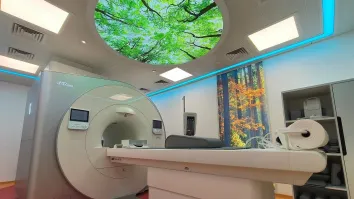
India eyes database on drug formulations in the country
This will help address issues on the quality of drugs in the market, Fitch Solutions said.
The Indian government has expressed plans to form an extensive database on all drug formulations sold in the country, seeking to empower consumers and enhance medicine quality monitoring in the country.
India’s Ministry of Health and Family Welfare (MoHFW) said it will prepare a comprehensive database of drug formulations manufactured and marketed in the country, with the aim to provide detailed information on a drug, its dosage form, strength, and details of the manufacturer, marketer, or importer of the drug.
In order to prepare the National Drugs Database, India’s MoHFW will set up a committee comprising the commissioner of the Food and Drug Control Administration (FDCA), doctors from renowned public hospitals, scientists at the Indian Council of Medical Research as well as several state drugs controllers to review an existing database.
Fitch Solutions noted that the government’s new proposal will help address the issue surrounding the substandard quality of drugs in the market and ensure that medicines are of proven quality and safe to consume.
READ MORE: Rising AI-focused healthtech startups in India lure in big companies: report
“Increasing efforts by the Indian government will also strengthen the national pharmaceutical sector by ensuring that drugs are of uniform quality. As such, medical professionals operating in India concerned about spurious and substandard drugs in the market will prescribe medicines with more confidence, boosting their prescription and uptake in the market,” the report stated.
Fitch noted that there have been national and international concerns about the quality of Indian pharmaceutical products, with occasional non-adherence to Good Manufacturing Practice (GMP) by companies.
As a major exporter of generic medicines, India draws regular scrutiny from drug regulators in the US and Europe. In 2021, a total of 46 pharmaceutical companies in India had their licenses cancelled and they were issued warning letters for several quality-related issues.
As such, with the National Drugs Database, medicines can be traced to final products and issues around substandard quality can be traced back to its source, strengthening the country’s medicine market, the report noted.
“As the Indian pharmaceutical industry expands its global footprint, it will need to continuously invest in upgrading quality standards in order to remain a high-quality and reliable supplier of medicines globally,” Fitch added.
But the report raised concerns that the implementation of the database will unlikely take place in the short-term, especially as it requires the participation of all stakeholders in the supply chain for it to work.
“It will be a challenge for the Indian government to implement the portal and connect several thousand drug manufacturers, their warehouses, and suppliers across the country,” they said.



















 Advertise
Advertise







